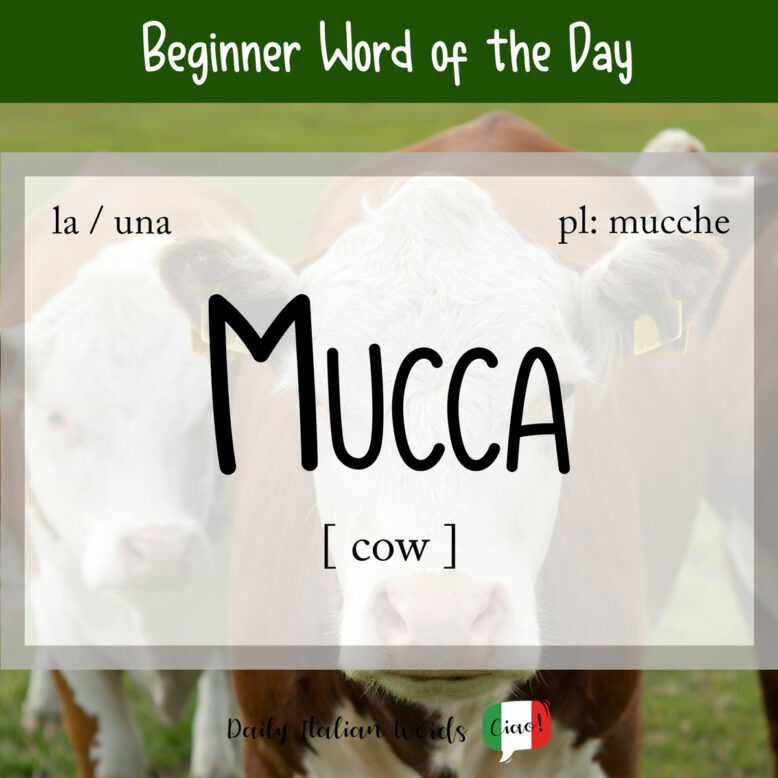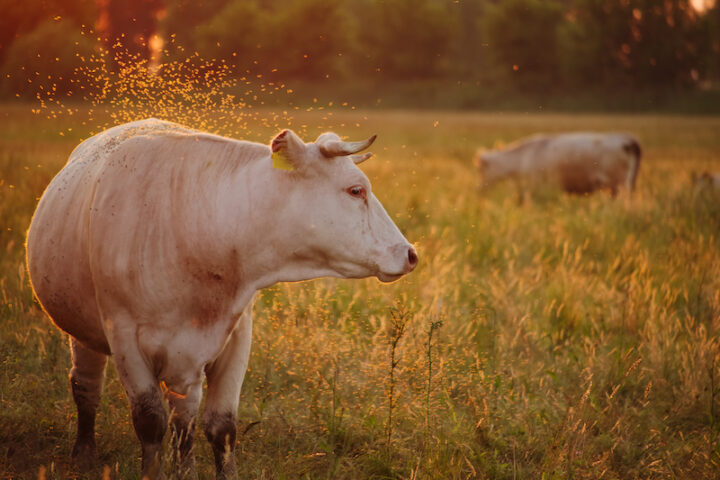The Italian word for cow is mucca (feminine, plural: mucche). As in English, the word refers to the female of a domesticated breed of ox that produces milk (latte) or beef (carne bovina).

To milk a cow in Italian translates as mungere una mucca.
Molti allevatori continuano a mungere le loro mucche a mano.
Many farmers continue to milk their cows by hand.

Another name for a cow in Italian is vacca. This term is normally used by breeders to denote the adult female who has already given birth. When they wish to indicate a cow of any kind instead, regardless of age or whether it has given birth, it is called a bovina, whereas a young cow is a giovenca or vitellona.
Because vacca is considered vulgar due to its use as a derogatory slang term towards women, mucca or mucca da latte (dairy cow) are the preferred terms in day-to-day speech.
Tu sai qual’è la differenza fra la mucca e la vacca?
Do you know the difference between “mucca” and “vacca”?
There are three possible theories for the origin of the word mucca.
The first, proposed by Treccani, is that it comes from the Swiss-German Mugg and was originally used to denote the Swiss cows bought at the Lugano fair.
Sapere, on the other hand, states that the origin is uncertain. One theory suggests it is a hybrid of the words muggire (to moo) and vacca. Another is that it is simply onomatopoeic (mug).
Finally, the mad cow disease that originated in the United Kingdom in 1996 is known as morbo della mucca pazza in Italy.
Heather Broster is a graduate with honours in linguistics from the University of Western Ontario. She is an aspiring polyglot, proficient in English and Italian, as well as Japanese, Welsh, and French to varying degrees of fluency. Originally from Toronto, Heather has resided in various countries, notably Italy for a period of six years. Her primary focus lies in the fields of language acquisition, education, and bilingual instruction.


